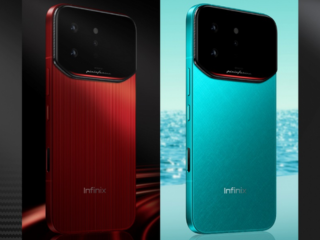- Home
- Telecom
- Telecom News
- Hathway Gives Free Android Based 'Play Box' Streaming Device to Broadband Subscribers
Hathway Gives Free Android-Based 'Play Box' Streaming Device to Broadband Subscribers
Hathway subscribers need to buy 100 Mbps and above plans for at least two months to avail the new offer.

Hathway subscribers need to pay a minimum of Rs. 2,847 initially to avail Play Box streaming device
Hathway last year launched its Android-based Play Box to take on the competition. Now, the company has reportedly announced it is offering its Play Box free to subscribers opting for 100 Mbps and above plans for at least two months. The new development is said to be initially limited to Chennai and is valid on plans starting from Rs. 949 per month. With the bundling of the Play Box, Hathway is probably trying to make things difficult for major ISPs in the region.
As per a report by TelecomTalk, the Hathway Play Box is being offered to the subscribers who have opted for a 100Mbps or above plan for two months or more. The subscribers are, however, said to pay minimum Rs. 2,847 initially for subscribing to the 100Mbps plan for three months. This brings 1TB FUP limit on a monthly basis.
While the new Play Box integration is available for Hathway subscribers in Chennai, it is also reportedly planned to reach other cities, including Hyderabad with few tweaks.
To recall, Hathway launched its Android TV-based Play Box back in October last year. The device is priced at Rs. 2,999 and is designed to offer features such as Google Assistant support and inbuilt Chromecast. It also enables the streaming of Web content on televisions with an HDMI out port.
Hathway is reportedly offering Netflix subscription for two months for subscribers using its Play Box. Additionally, it comes with a 12-month subscription to Sun NXT and two months subscription to YuppTV and ZEE5.
For details of the latest launches and news from Samsung, Xiaomi, Realme, OnePlus, Oppo and other companies at the Mobile World Congress in Barcelona, visit our MWC 2026 hub.
Related Stories
- Samsung Galaxy Unpacked 2026
- iPhone 17 Pro Max
- ChatGPT
- iOS 26
- Laptop Under 50000
- Smartwatch Under 10000
- Apple Vision Pro
- Oneplus 12
- OnePlus Nord CE 3 Lite 5G
- iPhone 13
- Xiaomi 14 Pro
- Oppo Find N3
- Tecno Spark Go (2023)
- Realme V30
- Best Phones Under 25000
- Samsung Galaxy S24 Series
- Cryptocurrency
- iQoo 12
- Samsung Galaxy S24 Ultra
- Giottus
- Samsung Galaxy Z Flip 5
- Apple 'Scary Fast'
- Housefull 5
- GoPro Hero 12 Black Review
- Invincible Season 2
- JioGlass
- HD Ready TV
- Latest Mobile Phones
- Compare Phones
- Realme Narzo Power 5G
- Vivo X300 FE
- Tecno Pop X
- Apple iPhone 17e
- AI+ Pulse 2
- Motorola Razr Fold
- Honor Magic V6
- Leica Leitzphone
- MacBook Neo
- MacBook Pro 16-Inch (M5 Max, 2026)
- Tecno Megapad 2
- Apple iPad Air 13-Inch (2026) Wi-Fi + Cellular
- Tecno Watch GT 1S
- Huawei Watch GT Runner 2
- Xiaomi QLED TV X Pro 75
- Haier H5E Series
- Asus ROG Ally
- Nintendo Switch Lite
- Haier 1.6 Ton 5 Star Inverter Split AC (HSU19G-MZAID5BN-INV)
- Haier 1.6 Ton 5 Star Inverter Split AC (HSU19G-MZAIM5BN-INV)
-
 Google Play Announces New Android Policies With Expanded Billing Options, Eases Access to Third-Party App Stores
Google Play Announces New Android Policies With Expanded Billing Options, Eases Access to Third-Party App Stores
-
 Google's NotebookLM Upgraded With Cinematic Video Overviews Feature
Google's NotebookLM Upgraded With Cinematic Video Overviews Feature
-
 Infinix Note 60 Ultra Launched at MWC 2026 With Pininfarina Design, Satellite Calling: Price, Specifications
Infinix Note 60 Ultra Launched at MWC 2026 With Pininfarina Design, Satellite Calling: Price, Specifications
-
 Realme Narzo Power 5G With 10,001mAh Battery Launched in India: Price, Specifications
Realme Narzo Power 5G With 10,001mAh Battery Launched in India: Price, Specifications










